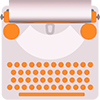A list of false friends: Why Denglisch is not the way to go
Handy shortcuts for translating
During the translation process, I find it very helpful to look out for so-called “false friends”. False friends are words, phrases or idioms that you might be tempted to translate literally, even though the literal translation is not 100 % accurate or even misleading. At the very least, this can lead to “Denglisch”, a confusing mixture of German words and English grammar or style. In order to avoid this, it is crucial to identify false friends. In this blog post I have compiled a list which will help you distinguish between English and German phrases easily.
In another blog post I describe my encounter with a “false friend” in a novel and why it completely changed the meaning of a scene.
Not every use of Denglisch is wrong, some uses are simply considered less common and might sound unusual to your readers. Some forms are increasingly common (e. g. translating “I think” as “ich denke”), so it really is up to you as a translator to decide which form to use.
You will find that in many cases there is no right or wrong, but when in doubt go with the version that sounds the most natural.
| English | Denglisch | German |
| I think | ich denke | Ich glaube |
| with all due respect | bei allem gebotenen Respekt | Mit Verlaub |
| to have a point | einen Punkt haben | da ist etwas Wahres dran/gutes Argument |
| in terror | in Schrecken | schreckerfüllt/schreckerstarrt |
| in 1870 | in 1870 | 1870/im Jahr 1870 |
| pink | pink | rosafarben |
| in the general direction | in die generelle Richtung | ungefähr in die Richtung |
| to overhear something | etwas überhören | etwas belauschen |
| sharp looks | scharfes Aussehen | elegantes Aussehen/geschniegelt und gebügelt aussehen |
| to eye someone | jemanden beäugen | jemanden mustern |
| to bet the farm | die Farm verwetten | alles auf eine Sache setzen |
| that’s torn it | das hat es zerrissen | das hat es verdorben |

